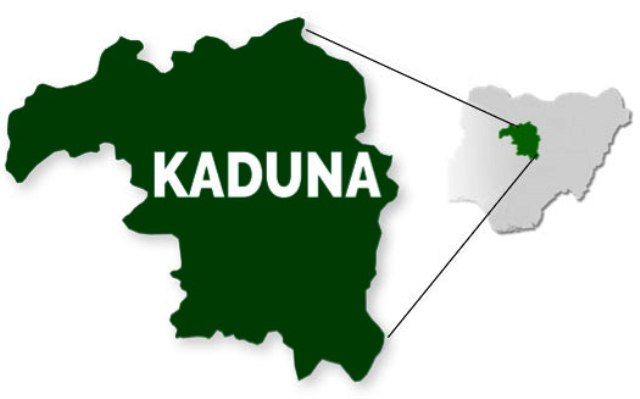Today’s youth may not know what happened between 1999 and 2007 because they were too young to remember, and their elders are too distracted with other socioeconomic issues to retell. Some people may even think that the current situation in the state is beyond redemption.
Senator Ahmed Makarfi served as the governor of Kaduna State from 1999 to 2007. He was elected twice under the Peoples Democratic Party (PDP) in 1999 and 2003. He became governor with full knowledge of the demands of different communities and was ready to address each issue from the day his administration began.
- NIGERIA DAILY: Untold story of trader who lost Over N100 Million goods to Kano Market Fire
- Nigeria won’t sink under my watch – Tinubu
He got first-hand information on the developmental needs of the state when he started campaigning for governor in 1998 when he travelled across the state. He saw the need for infrastructural development due to the lack of critical roads, potable water, healthcare, and dilapidated schools in rural areas across the state.
He heard the cries of marginalisation and injustice across several communities.
When his administration began, it inherited several peace-threatening problems, some of which had led to violent eruptions. The previous military governments had retrenched workers, increasing unemployment and poverty. The physical infrastructure in the state was poor, and the health sector needed a revamp.
In short, the living standard of Kaduna residents was poor, which required human and capital investment. The communities of Southern Kaduna felt the economic condition in the state is affecting them more. The administration had already studied the situation and understood the root cause of the persisting issues: lack of fairness, equity and justice for the rural communities and minorities in the state.
The most sensitive of the problems in Kaduna State was the bottled-up religious tension and mutual distrust that aided accusations of domination of one section of the state by the other, particularly as it related to traditional institutions and their headship.
The government confronted the issue to ensure an enabling environment for development is created. An engaged and empowered citizenry was another antidote to restlessness and the consequent breakdown of law and order.
On his assumption of office, the administration recalled the previous administration’s wrongfully dismissed 1,160 workers after a thorough review. The policy created job opportunities for people in areas of need and gave the administration time to implement other policies.
The governor then followed up with recruitment into the service of an additional 8,026 staff of varying categories.
Another peculiar legacy of Makarfi occurred when the neighbouring Zamfara State introduced Shariah. A spillover crisis erupted due to the clamour for and against establishing the Shariah legal system. The Makarfi administration was quick to rise to the occasion.
Given the multi-ethnic and multi-religious nature of the state and the seemingly uncompromising positions adopted by both sides of the debate, the government had to decisively wade in by coming up with a tripartite legal system that took the complexion of the state into account. All religions in the state—Christians, Muslims, and traditionalists—were offered a system that adjudicates according to their beliefs and customs within the confines of the provisions of the nation’s constitution.
The tripartite legal system introduced by the Kaduna State government was studied and adopted by several other states in Nigeria. It provided Shariah for Muslims and customary courts for non-Muslims, as well as retaining the existing common law system. It has gone a long way in giving all sections of the state a sense of belonging.
In addition, a Consultative Committee on Religious Peace and Harmony has been put in place. The governor clearly understood the key ingredients of governance. The response can be attributed to Makarfi’s principles and leadership skills.
A high point of the rapprochement between adherents of the Muslim and Christian faiths in the state was the production of a document on religious peace and understanding, signed by prominent Islamic and Christian leaders in the state.
The government also created two bureaus for religious affairs – one for Muslims and one for Christian matters – under the governor’s office, each headed by a permanent secretary, to coordinate the activities of the two religions and liaise between them and the government to foster harmonious coexistence and greater understanding.
In substantially silencing the cries of marginalisation and neglect, the Makarfi administration distributed the state’s infrastructural development evenly across the state. The administration designed its peace and security plan using a bottom-up approach – consulting with the grassroots.
The plan covered capital and human development across the state, which required balanced investment in hard and soft infrastructure.
For example, when the communities petitioned for a road in Anguwan Romi in Chikun Local Government, it took the governor only one week to start the road project and other electrification projects. Evidence showed it was Barnabas Gemade – then PDP chairman – who flagged off the projects.
During Makarfi’s administration, Kaduna State grew taller daily, blossoming along the way. That is because he cared more about beauty and less about hype. He created a culture of action on peacebuilding and prosperity.
Senator Makarfi wrote a history of peace and prosperity in Kaduna State during his tenure. The people of Kaduna hope to see an administration like that in 2023.
Makarfi was not perfect, but those old enough to remember will have a strong preference for his regime.
The moral of this story is that we can use equity, fairness and justice to build trust in our communities. Our youth may be unaware of these legacies, and it is important to be enlightened.
Some might have been told that solving complex issues like insecurity in northern Nigeria is difficult. We must keep reminding the electorate that peace can be built when everyone is carried along.

 Join Daily Trust WhatsApp Community For Quick Access To News and Happenings Around You.
Join Daily Trust WhatsApp Community For Quick Access To News and Happenings Around You.



